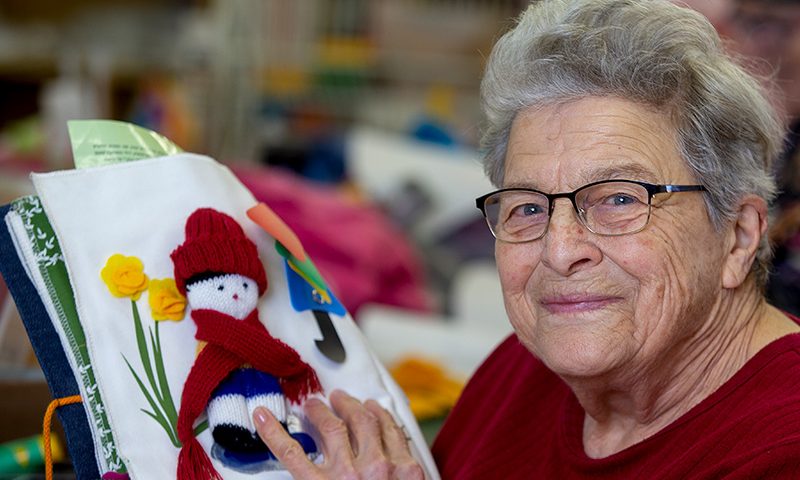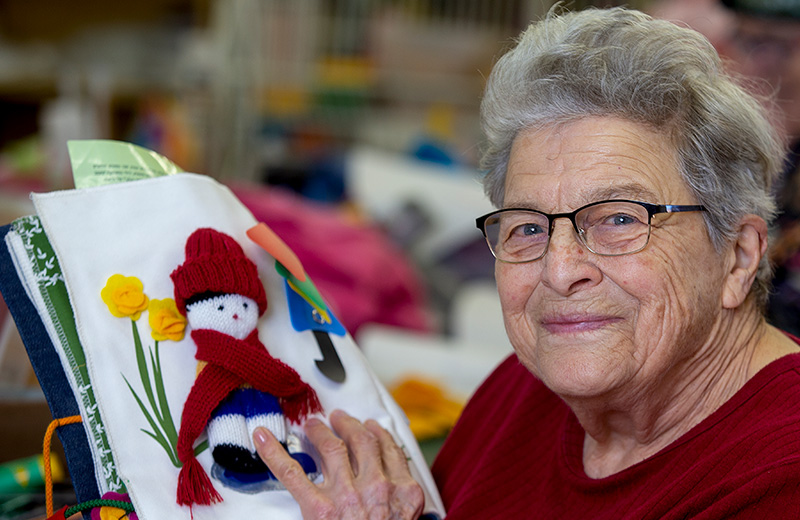Fifteen seconds. This is the amount of time Kibbutz Sa'ad residents have to save their own lives. The kibbutz is located on the Gaza border, a few hundred meters from Gaza City’s Shuja'iyya neighborhood - a terror stronghold in which some of the IDF's harshest and most traumatic battles have taken place over the last decade.
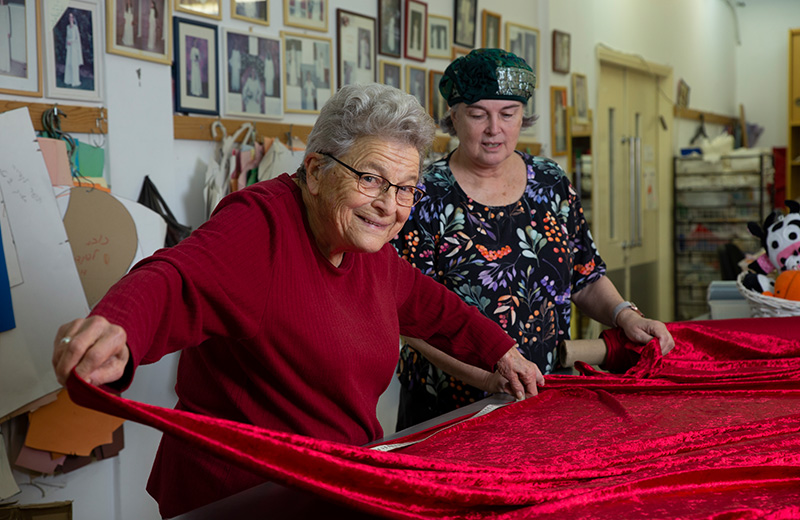 Kibbutz Sa'ad is regularly targeted by rocket fire; the short distance between the launch and landing points leaves residents little time to respond. Dozens of concrete shelters are scattered throughout the Kibbutz in order to shelter people caught in open spaces when the sirens blare.
Kibbutz Sa'ad is regularly targeted by rocket fire; the short distance between the launch and landing points leaves residents little time to respond. Dozens of concrete shelters are scattered throughout the Kibbutz in order to shelter people caught in open spaces when the sirens blare.
On a quiet day, one could never guess how dangerous people’s lives can be here. Pastoral scenery and clear air welcome everyone into the Kibbutz. A short distance from the entrance gate, between the secretariat building and the Kibbutz's small gas station, stands a temporary building with a modest “Kav LeKav” sign posted above it. Over the years, this temporary building has become more permanent than any stone house on site. Upon entering the building, time seems to stop and age has no meaning.
Here, a group of women in their 70s, 80s and 90s vigorously labor over large sewing machines. Among them is Rachel Aviram, the diligent and enthusiastic 81-year-old manager of the sewing factory who ensures every stitch is perfect. She spreads a variety of products which all began as simple pieces of cloth on a large table.
"We make children's activity books, baby blankets, dolls and aprons", she says. “It’s significant that these products come from our region and are created by women like us. It's a message to the world that age and events that transpire outside the window don’t matter - if we want to do something, we can do it".
Spend a morning with friends without missiles and sirens
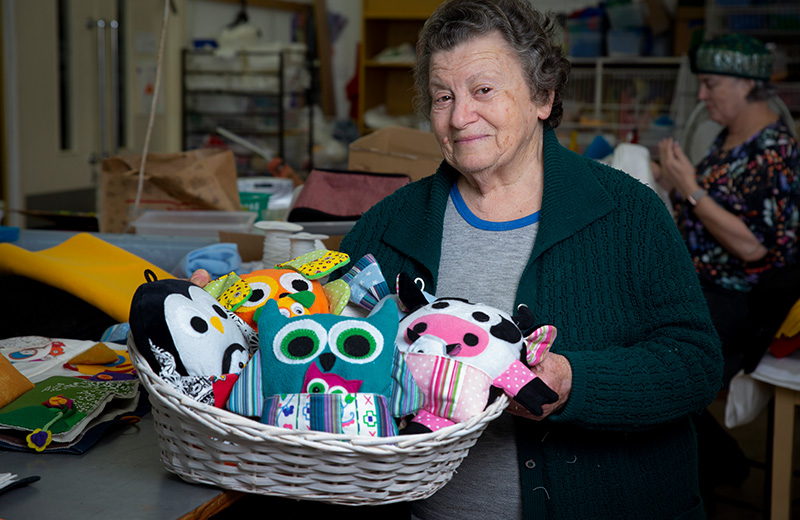 Kav LeKav’s most impressive and unique product is undoubtedly its book series. Sewn entirely by hand, these stitched books contain pop-up elements and items that can be transferred between pages as a study aid. The books are geared for toddlers aged one to six and teach about Israeli holidays or seasons of the year in both English and Hebrew. Sifting through the books even causes grown-ups to drift into the magic of childhood.
Kav LeKav’s most impressive and unique product is undoubtedly its book series. Sewn entirely by hand, these stitched books contain pop-up elements and items that can be transferred between pages as a study aid. The books are geared for toddlers aged one to six and teach about Israeli holidays or seasons of the year in both English and Hebrew. Sifting through the books even causes grown-ups to drift into the magic of childhood.
Aviram has five children and 20 grandchildren and great-grandchildren. Still, she didn’t hesitate when she was offered to run the sewing workshop. "The women come here every morning at 7:30 AM and work until 11:00 AM. We rarely have absences, and even then it's usually because someone has a medical exam ", she says proudly. “For us, this is far beyond work. It’s a privilege to get out of the house and do something useful; to spend each morning joyfully working with friends without thinking of sirens or missiles. It’s not easy to live – let alone create and sell – with this security situation. So we value every customer all the more so. And you won't find what we have here in China or the Amazon or any of those sites for young people. Everything here is handmade and unique. It’s important to know that we have support from across the ocean; to know that we’re not alone and that people want our products".
Have you already used your profit to purchase a villa in the Kibbutz?
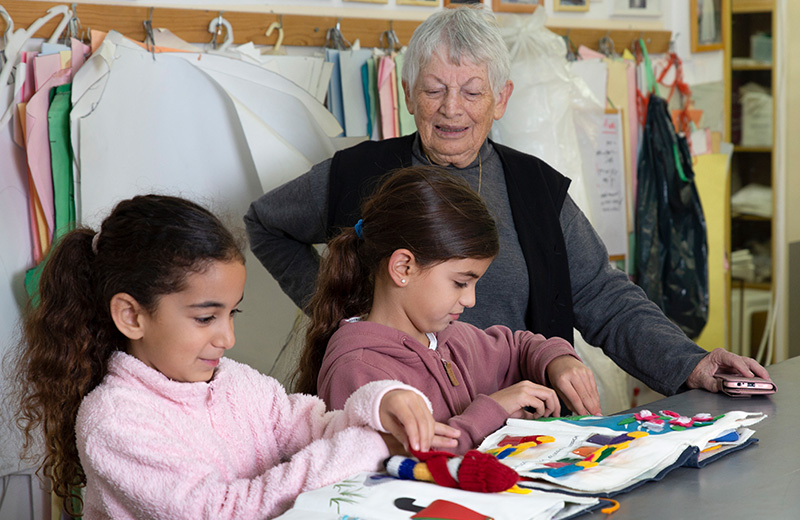 "No", she laughs. "We use it to buy materials and make more Israeli products. Our work sells well and we’re obviously always looking to grow. However, the purpose of this business is its existence – nobody is here to get rich. At the end of the day, we’re not just selling a product; rather, a true connection to the Holy Land and to the Jewish story".
"No", she laughs. "We use it to buy materials and make more Israeli products. Our work sells well and we’re obviously always looking to grow. However, the purpose of this business is its existence – nobody is here to get rich. At the end of the day, we’re not just selling a product; rather, a true connection to the Holy Land and to the Jewish story".
"The challenge to create something original draws them back every time"
The name “Kav LeKav” is taken from Isaiah Chapter 28, Verse 10: "For a precept for a precept, a precept for a precept, a line for a line, a line for a line, a little there, a little there". The text explains that the study of divine commandments is done with rigor and patience: a commandment after a commandment, a line after a line, time after time in small doses - just as children are taught.
Rebecca Yedidia, 90, has been working at the sewing factory almost since the day it first opened. "During our peak period, we sewed modest clothing for all of the Kibbutz residents. We also fixed clothes and did other random sewing work for the Kibbutz”, she recalls. “Quite a few of the members who worked here are no longer with us. Creativity and ideas thrived here, and the clothes we made became in demand in the area. Then clothes from China came along, forcing us to close up shop”.
At this point, story turned around. "We realized that we still had the necessary equipment and machines and the workers wanted to keep working", Aviram recalls. "So we ultimately decided that pensioners would continue operating the place alone. It's amazing how much creativity they bring with them every day – we never stop adding gifts and products.
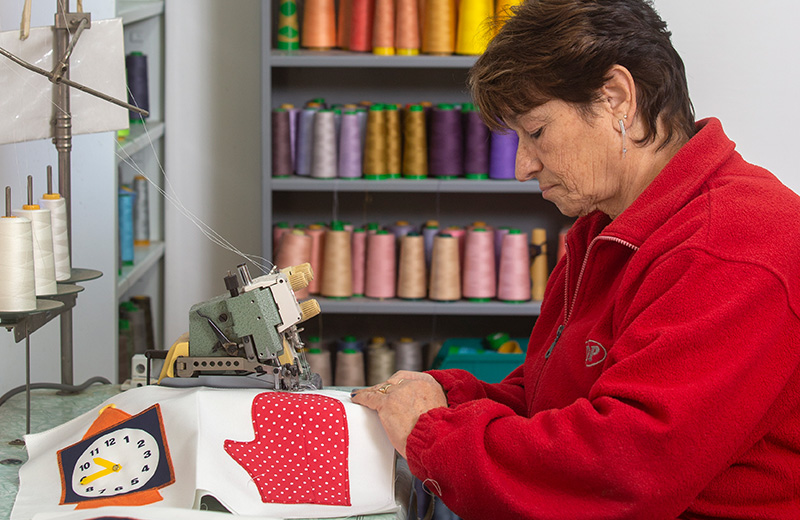 Just this year, we added toy animals made from fabric. There’s also a significant advantage for the workers. When you grow older, it's even harder to get up and go to work (even when it’s a job like this). The challenge of creating something original draws these workers over and over again".
Just this year, we added toy animals made from fabric. There’s also a significant advantage for the workers. When you grow older, it's even harder to get up and go to work (even when it’s a job like this). The challenge of creating something original draws these workers over and over again".
One of the young women in the group is 67-year-old Rosie Weisel. Rosie is a mother of six and grandmother of 12. "Even though we have a secure space here, we stay during tense days; we don't take risks," she reveals. “When sirens blare, we hide and then go home, but I’m very happy the toys we make calm kids down. The dolls activities in school keep kids busy and cause them to forget about the sirens".
Older than 80 years old, Sarah Jackson maneuvers between her sewing job and being a grandmother to over 50 grandchildren. "I buy gifts here for births and weddings in my family", she says. “I think our products are the best. In my opinion, this is a place for calming down; for working with my friends. And besides that, most of us didn’t have toys growing up. Therefore, this is an affirmative personal experience for me".
And what will happen in 20 years?
"Unfortunately, there isn’t a young generation that wants to pursue this work after us", Aviram says regretfully. "When we go, it’ll be over. This makes me sad, but for now we plan to continue as long as we can. Every child who gets one of our products keeps the factory alive. He or she become a part of us”.

